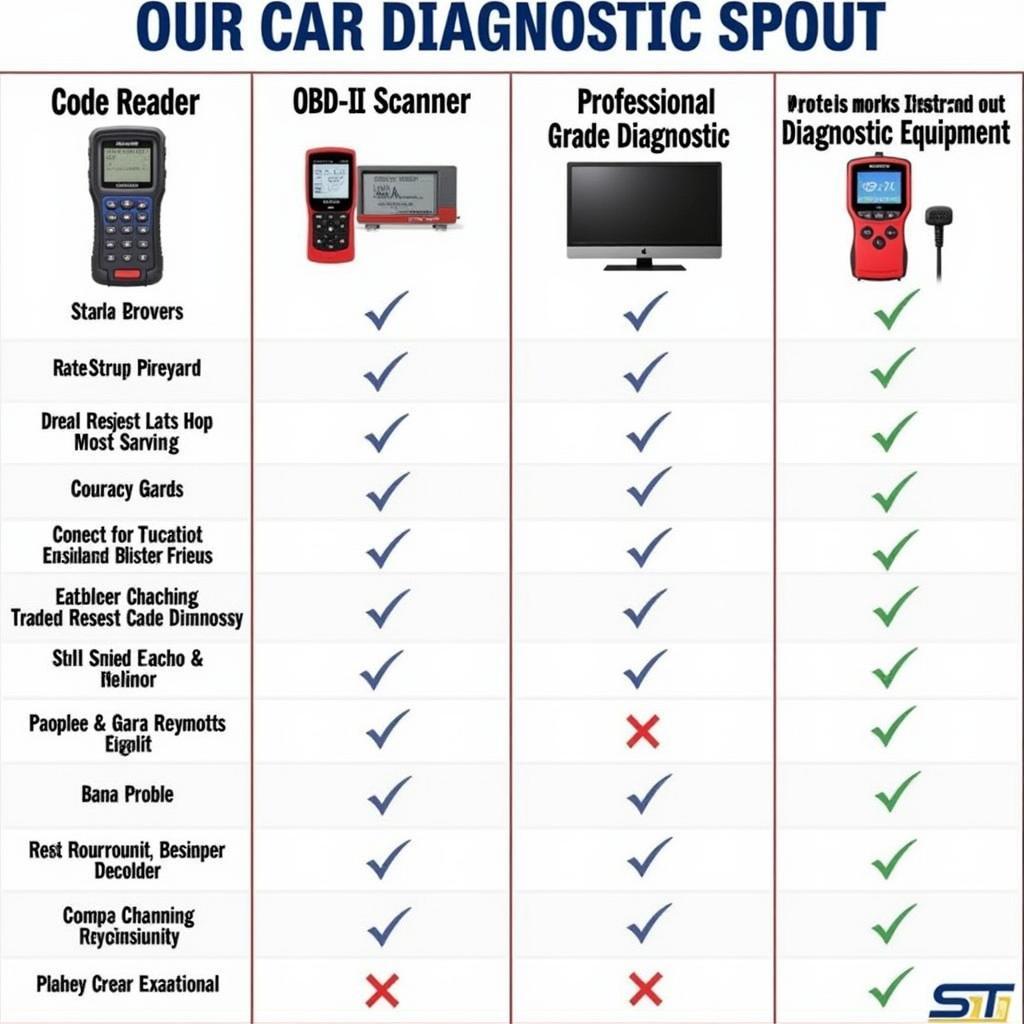Learning car diagnostics is no longer a luxury but a necessity in today’s automotive world. Whether you’re a professional mechanic, a DIY enthusiast, or simply a car owner wanting to understand your vehicle better, grasping the fundamentals of car diagnostics can save you time, money, and frustration. This guide will provide you with a comprehensive overview of car diagnostics, covering everything from basic concepts to advanced techniques.
Understanding the Basics of Car Diagnostics
Car diagnostics involves identifying and troubleshooting issues within a vehicle’s various systems. It relies heavily on interpreting data from the car’s onboard computer, often accessed through a diagnostic port. This data, presented as Diagnostic Trouble Codes (DTCs), provides clues about the nature and location of the problem. Understanding these codes is the first step towards effective car diagnostics. You can learn how to use a car diagnostics machine to access and interpret these codes. Furthermore, understanding the different types of diagnostic tools available is crucial.
Want to learn more about using diagnostic machines? Check out our learn how to use car diagnostics machine guide.
Why Learn Car Diagnostics?
Learning car diagnostics empowers you to take control of your vehicle’s maintenance. Instead of relying solely on mechanics, you can perform preliminary diagnoses, identify potential issues early on, and even fix some problems yourself. This knowledge can significantly reduce repair costs and prevent unnecessary trips to the workshop.
Delving into Diagnostic Tools and Techniques
The world of car diagnostics offers a wide range of tools and techniques, each with its own advantages and applications. From basic code readers to advanced scan tools, choosing the right equipment depends on your needs and level of expertise.
Choosing the Right Diagnostic Tool
Selecting the appropriate diagnostic tool can be overwhelming. Factors to consider include the vehicle’s make and model, the depth of information required, and your budget. For specific brands like Honda, dedicated tools like the honda car diagnostic tool can provide more detailed insights.
 Car Diagnostic Tools Comparison: Code Readers vs. Scan Tools
Car Diagnostic Tools Comparison: Code Readers vs. Scan Tools
Mastering Diagnostic Techniques
Beyond the tools, mastering the techniques for effective diagnostics is essential. This involves understanding how different vehicle systems interact, interpreting sensor data, and using logical deduction to pinpoint the root cause of a problem. A structured car diagnostics learning course can provide the necessary skills and knowledge.
Advanced Car Diagnostics and Future Trends
As vehicles become increasingly complex, so too does the field of car diagnostics. Keeping up with the latest advancements and trends is crucial for staying ahead of the curve.
The Rise of Software-Based Diagnostics
Software-based diagnostic tools and apps are becoming increasingly popular. These tools offer flexibility and portability, often utilizing tablets or smartphones for data display and analysis. For iPad users, a dedicated car diagnostic app for ipad can be a valuable asset.
Embracing the Future of Car Diagnostics
The future of car diagnostics is likely to be driven by advancements in artificial intelligence and machine learning. These technologies have the potential to automate diagnostic processes, predict potential failures, and personalize the driving experience.
“The integration of AI in car diagnostics will revolutionize the way we maintain and repair vehicles,” says Dr. Emily Carter, Automotive Systems Engineer at the Institute for Vehicle Diagnostics.
Learn Car Diagnostics: Frequently Asked Questions
What are the benefits of learning car diagnostics?
Learning car diagnostics can save you money on repairs, empower you to maintain your vehicle proactively, and provide a deeper understanding of how your car works.
What are the basic tools needed for car diagnostics?
Basic tools include an OBD-II scanner or code reader, a repair manual, and a basic set of hand tools.
How can I learn more about car diagnostics?
Numerous resources are available, including online courses, workshops, and books.
Is it difficult to learn car diagnostics?
The level of difficulty depends on your technical aptitude and the depth of knowledge you seek. Starting with the basics is always recommended.
What are Diagnostic Trouble Codes (DTCs)?
DTCs are codes stored in the car’s computer that indicate specific malfunctions within various systems.
What is the difference between a code reader and a scan tool?
Code readers retrieve basic DTCs, while scan tools offer more advanced functionalities such as live data streaming and bi-directional control.
What are some common car diagnostic mistakes to avoid?
Common mistakes include misinterpreting DTCs, failing to check all relevant systems, and replacing parts without proper diagnosis.
You can explore more about Bosch diagnostic tools here: car diagnostics bosch.
Conclusion
Learning car diagnostics is a valuable investment for any car owner or automotive professional. By understanding the basics, mastering diagnostic techniques, and staying abreast of industry trends, you can empower yourself to take control of your vehicle’s health and save money on repairs. Begin your journey into the world of car diagnostics today and experience the benefits firsthand.
“Proactive car diagnostics is no longer an option, but a smart strategy for efficient vehicle maintenance,” adds John Miller, Certified Master Technician.
Need further assistance? Contact us via WhatsApp: +1(641)206-8880 or Email: [email protected]. Our customer support team is available 24/7.